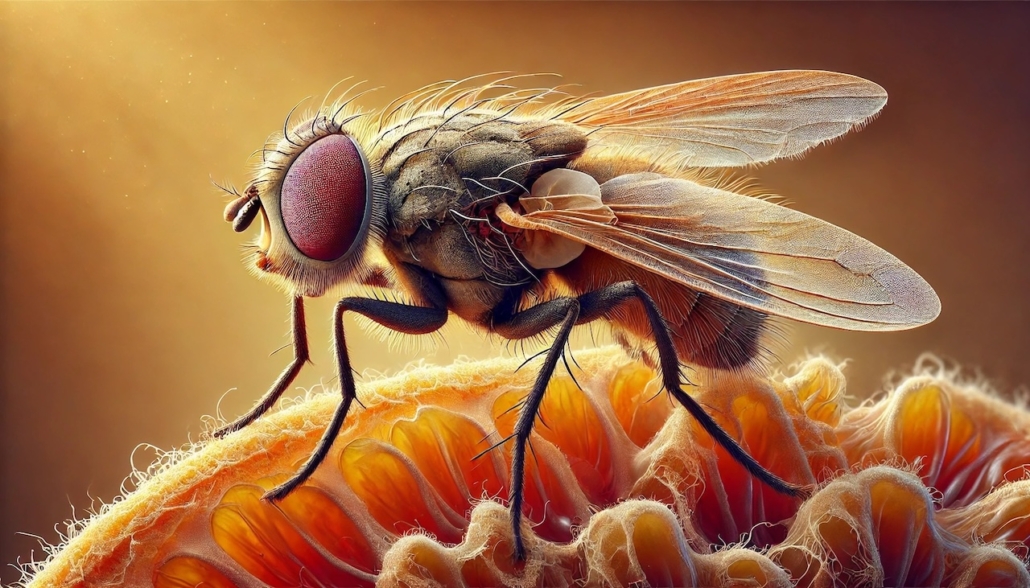SHERLIE THAYER
CLINTON – Sherlie Thayer, 94, passed away peacefully on Thursday, January 23, 2025. She was born on July 16, 1930.
For much of her adult life, Sherlie worked as a waitress at Mary’s Place, in Clinton, where she became a beloved fixture in the community. If you dined there, Sherlie knew you – and you knew her. Her warmth and genuine care for her “people” left a lasting impression on everyone she met. She had a remarkable ability to make every customer feel like family, and her kindness was returned with the love and admiration of those she served.
Sherlie’s family was her greatest treasure. She took immense pride in their accomplishments and cherished every moment spent with them. Her love extended to her church family, where she found strength and fellowship, and to her pets, who were her loyal companions throughout the years.
Sherlie was preceded in death by her siblings, Carl and Katherine; as well as her son Ira and daughter Patricia.
She is survived by her son Terry and his wife Kim; her son-in-law Keith; her grandchildren, Ken and his wife Angel, Justin and his wife Crystal, Teaen and her husband Greg, and Michael Thayer; three step- brothers; as well as many nieces and nephews; eight great-grandchildren; and six great-great-grandchildren.
A graveside service will be held in the spring, with the date to be determined, where family and friends will gather to celebrate her remarkable life and legacy.
In lieu of flowers, the family kindly requests donations be made to your local humane society.
CYNTHIA L. WILLEY
 OAKLAND – Cynthia “Cindy” Louise Willey, 66, passed away unexpectedly on Sunday, January 26, 2025, at her residence. She was born on December 4, 1958, in Portland,
OAKLAND – Cynthia “Cindy” Louise Willey, 66, passed away unexpectedly on Sunday, January 26, 2025, at her residence. She was born on December 4, 1958, in Portland,
Cindy enjoyed spending time playing games, cards and doing puzzles, making her a well-rounded source of trivia knowledge. She often was the winner of such games at family gatherings. She loved reading, listening to music, spending time with friends and many other interests.
Cindy was preceded in death by her father, Russell Percy Willey; and her son, Ronald “Ronnie” Charles Willey.
She is survived by her mother, Margaret “Peggy” Caouette; four sisters, Hope Segar and husband Steven, Susan Willette and husband Robert, Jeanne Labreck and husband Wayne and Angela Derosby and husband William; three nephews, Jacob Willette and wife Mallory, Jordan Derosby, Russell Labreck; five nieces, Aimee Lynch and husband Bradley, Megan Willette and partner Luis Cotto, Kari Derosby, Krystal Labreck, Kerry Gervais and husband Chris; several grand-nieces and grand-nephews.
A memorial service will be held in the Capitol Room, at Governor’s, in Waterville, on Saturday, February22, from 2 to 4 p.m. for those who would like to celebrate Cindy’s life.
HAZEN R. SHAW JR.
 SKOWHEGAN – Hazen Russell “Skip” Shaw Jr., 69, a lifelong resident of Skowhegan, passed away on Monday, February 3, 2025. Skip was born on June 20, 1955, in Skowhegan and attended Skowhegan High School.
SKOWHEGAN – Hazen Russell “Skip” Shaw Jr., 69, a lifelong resident of Skowhegan, passed away on Monday, February 3, 2025. Skip was born on June 20, 1955, in Skowhegan and attended Skowhegan High School.
In 1974, he met his high school sweetheart, Laurie Hooper, and they were married in 1976. They had 48 years of marriage and were such a perfect fit for each other. Skip worked for over 20 years at the Clinton Woolen Mill, and after that at the Hartland Tannery for 26 years until he retired in 2019.
Skip loved being with family and helping others, always anxious to help them with whatever project they were working on. He enjoyed playing cards, fishing, hunting and camping, especially “upcountry.” His fishing and car driving escapade stories are the stuff of legend. He was so much fun to be around, and he will be sorely missed by all who had the pleasure of spending time with him.
He was preceded in death by his parents Carolyn and Hazen Shaw, Sr.,
Skip is survived by his wife of 48 years, Laurie Shaw, of Skowhegan; sisters, Rebecca Thelin with her husband Andy, Debbie Holt with her husband Tommy, Colleen Wood with her husband Richard, Patricia Michaud; sisters-in-law, Ann Laverdiere and JP Faucher, Vickie Hunnewell with her husband Steve; brother-in-law, Larry “Brother” Hooper with his wife Kathy; as well as many nieces, nephews; great-nieces and great-nephews.
A Celebration of Life will be held starting at noon, on Saturday, June 21, 2025, at the Canaan Farmers Hall, in Canaan.
Please visit Skip’s memorial page at https://svremembrancecenter.com/obituaries/hazen-shaw where condolences, photos, and special memories may be shared.
In lieu of flowers, donations may be made to the Somerset Animal Shelter, in Skowhegan.
THERESA D. VIOLETTE
 WATERVILLE – Theresa Dumont Violette, 98, passed away on Thursday, February 6, 2025. Theresa was born on November 18, 1926, to Mattie Brann and Joseph S. Dumont.
WATERVILLE – Theresa Dumont Violette, 98, passed away on Thursday, February 6, 2025. Theresa was born on November 18, 1926, to Mattie Brann and Joseph S. Dumont.
She was raised in Fairfield, and attended St. Joseph’s Academy, in Portland, for high school. She received a classical education.
Theresa’s life was rooted in the close bond she shared with her parents, eight siblings, and maternal grandmother. Another beloved foundation was her husband James P. Violette, also of Fairfield. The pair married following his Naval service in the Korean War. Together, they built a home in Waterville where they devoted themselves to raising their four children.
In 1963, Theresa and Jim purchased an old cottage on Great Pond, in North Belgrade. In the years to come, they spent every summer transforming the rundown camp into a beautiful refuge. Family and friends came together to enjoy the lake, work in the garden, eat Theresa’s raspberry pie, and play cards late into the night. She was a natural hostess, drawing many to the porch for supper and a sunset.
Theresa had a deep appreciation for folk art, and her own creativity shone in reverse glass painting, furniture refinishing, and the colorful painting of Jim’s carvings. She was an active member of the Friends of Art at Colby College, The Historical Society of Early American Decoration, Central Maine Garden Club, Youth for Understanding, and the Waterville Historical Society.
Theresa was predeceased by her husband, Jim; and first-born son, Thomas; as well as her eight siblings, Kathleen Dumont (Sister of Mercy), Marguerite (Gerard) Begin, Henry Dumont (MIA World War II), Florence (Clement) Theberge, Lena (Neri) Maillet, Lawrence (Therese) Dumont, Richard Dumont, and Joseph (Roberta) Dumont.
Theresa is survived by her children, James P. (Mary Flaherty) Violette Jr., of Kennebunk, Paul B. (Watcharee Limanon) Violette, of Yarmouth, John B. (Pamela Kirk), of Granby, Connecticut, and Mary R. (Herb Nolan) Violette, of Wellesley, Massachusetts; her 12 grandchildren include James (Jeanine), Anne (Ben), Grace (Chase), Luke, John, Marie, Andre, August, William (Maude), Nathaniel, Olivia, and Annabelle; and seven great-grandchildren, Ellis, Bailey, Andrew, Bennett, Colin, Callahan, and Maxine.
A Mass of Christian Burial will be celebrated at St. Helena’s Church, in Belgrade Lakes, this summer.
Donations may be made to The Belgrade Lakes Association and 7 Lakes Alliance.
DALE AUSTIN
 SIDNEY – Dale Austin, 90, passed away Saturday, February 8, 2025, as the result of an accident at home. He was born in Oakland on April 26, 1934 to Robert P. Austin and Christine (Sweet) Austin.
SIDNEY – Dale Austin, 90, passed away Saturday, February 8, 2025, as the result of an accident at home. He was born in Oakland on April 26, 1934 to Robert P. Austin and Christine (Sweet) Austin.
The family moved to Sidney that same year.
Dale graduated from Cony High School, in Augusta, class of 1952. During high school, he worked part-time at Pine State Tobacco.
Dale went on to make his career at Bath Iron Works and graduated from the BIW Apprentice School in 1955. He worked his way through the ranks as a shipfitter, loftsman, and leading man. In 1973 he was promoted to foreman and held that position until 1984. From 1984-1990 he was Special Projects Manager for the Industrial Products Department until his early retirement in 1990.
During this time, he also worked part-time at Hammond Lumber Company, in Belgrade, designing and building components for a state-of-the-art sawmill, and truck bodies.
Dale gave much of his time to the town of Sidney, serving on the budget, planning, athletic, and road committees. He also served as PTA president for three years, an assistant scout leader, grounds superintendent for the Sidney Fair, secretary for the Center Sidney Fire Department, and was a member of the Sidney Grange for many years.
Dale was the longest-serving member, at 68 years, of the Ancient Free and Accepted Masons Rural Lodge of Sidney and a Past Patron of the White Rose Chapter of the Eastern Star.
He enjoyed antique cars, was a member of Maine Obsolete Auto League, and even built a replica ‘52 MG.
Dale enjoyed working with steel, drawing, oil painting, bowling, collecting scale model cars, camping, and cooking, often experimenting with new recipes.
Dale was predeceased by his parents; his brothers Theodore Austin and Dwain Austin (and wife Janet); daughter, Polly Austin, and son, Timothy Austin.
He is survived by his wife Maxine of 43 years. He fathered six children with his first wife, Shirley, of 29 years. The surviving children are Janet Desjardins of Augusta, Sharon Soble, of Florida, Shari Austin, of Virginia, David Austin and wife Linda, of Albion, and his adopted daughter, Renee Page and husband Richard, of Farmingdale; 12 grandchildren; 16 great-grandchildren; and several nieces and nephews.
A graveside service for close friends and family will be planned in the spring.
If you would like to leave a memory about Dale, please do so on the Wheeler’s funeral home website https://wheelerfh.com/ under his obituary.
BOBBIE JO EVANS
 PALERMO – Bobbie Jo Evans, 52, passed away quietly on Sunday, February 9, 2025. She was born on April 30, 1972, to Jeffrey and Lauretta Grady, of Palermo.
PALERMO – Bobbie Jo Evans, 52, passed away quietly on Sunday, February 9, 2025. She was born on April 30, 1972, to Jeffrey and Lauretta Grady, of Palermo.
Bobbie Jo loved life and lived it to the fullest, always. She. was an incredibly hard worker who didn’t know the meaning of the word “quit”. She had a sharp wit and an infectious laugh. Her smile and spirit lit up a room. A scooter was her preferred mode of transportation, and she loved nature in all its forms.
She was an avid hunter and fisher and spent many hours camping with her family. She was a fierce friend, an incredible grandmother, and had a unique way of ensuring those whom she loved always felt important and cared for.
Bobbie Jo worked at Blueberry Patch Childcare from 2000 to 2018 with owner Katie Bailey. The two became lifelong friends and enjoyed many adventures together through the years. She then worked at Piece Works from 2018 – 2024 and genuinely loved the work she did there. It kept fingers and mind busy, and always enjoyed learning new skills.
She was married to the love of her life, Scott Evans, for 32 years, and they created a beautiful life together.
Bobbie Jo is survived by her parents; her husband; mother-in-law Judy Evans; sons Cole and James Evans; daughters-in-law Michelle and Isabelle; grandchildren, Ava, Anna,Walter, and Milana; niece Clary Grady; nephews Jacob and Kay Grady; and many aunts, uncles and cousins.
She was predeceased by her brother, Jeffrey Grady, and father-in-law, Junior Evans.
Take some time and read these three verses in the Bible for Bobbie Jo: Isaiah 53:5, Romans 12:1-2, and Proverbs 1:7.
There will be a family gathering and celebration of life held on Saturday, March 1, 2025.
JANICE E. CUSHMAN
 WATERVILLE – Janice E. Cushman, 63, passed away at her home on Monday, February 10, 2025. Janice was born in Waterville on April 24, 1961, daughter of Dorothy (Stuart) and James Cushman. She was raised in Clinton.
WATERVILLE – Janice E. Cushman, 63, passed away at her home on Monday, February 10, 2025. Janice was born in Waterville on April 24, 1961, daughter of Dorothy (Stuart) and James Cushman. She was raised in Clinton.
She was predeceased by both her parents; brother, Thomas Cushman, and sister, Pamela Weisher.
Janice is survived by her husband, Joe Rogers; children, Brandy Robinson, of Waterville, Rachel Howard, of Mercier, Terri Cushman, of Waterville, Donald Denni,s of Waterville, Cheyenne Potter, of Waterville, and Rhonda Rogers, of Waterville; grandchildren, Allen, Brooke, James, Nickolas, Octivia, Allexius, Dylan, Alex, Connor, Madison, Kia, Shelby, and Nikita; great-granddaughter, Kinsley; siblings Mary (Leroy) Welsh, Martha Howard, Maurice (Lek) Pillsbury, Diane (Mike) Dailey, Dwayne Pillsbury, Jo Ann Cushman (Mike Corson); as well as many aunts, uncles; cousins; nieces, and nephews.
At her request, there will not be a service at this time.
Please visit her memorial page at https://svremembrancecenter.com/obituaries/janice-cushman where condolences, photos, and special memories may be shared.
GARY A. WORKS SR.
 WINSLOW – Gary Arthur Works, Sr., 66, passed away on Tuesday, February 11, 2025, at MaineGeneral Medical Center, in Augusta. Gary was born in Waterville on February 19, 1958, son of Laurina and Everett Works.
WINSLOW – Gary Arthur Works, Sr., 66, passed away on Tuesday, February 11, 2025, at MaineGeneral Medical Center, in Augusta. Gary was born in Waterville on February 19, 1958, son of Laurina and Everett Works.
He grew up in Shawmut and graduated from Lawrence High School, in Fairfield, class of 1976. He worked for Keyes Fibre Company (now Huhtamaki), at Shawmut Mill, then at the Waterville Mill, from where he retired, due to health issues, after 27 years of service .
Gary was an avid sportsman. He enjoyed his yearly spring fishing and fall bird hunting trips with his brother, Skip. He also enjoyed spending his summers at camp on Pattee Pond, where he could be found sitting on the deck or in the water. He acquired a love of traveling on cruise ships with Kelly and close friends and was looking forward to a cruise in August.
Gary had a big heart and was always there for friends and family. If you were in need, Gary’s door was always open, he would do what he could to help. He was also forever appreciative of his friends who were there for him when he needed a hand. Gary had a natural gift as a peacemaker. He could get people to forget their differences and become friends. They say, “good fences make good neighbors”. Gary could get neighbors to tear down fences and become great friends, a gift that we will be grateful for forever.
Gary was a life member of the Waterville Elks Club, with 36 years, and an auxiliary member of MacCrillis-Rousseau VFW Post #8835, Winslow VFW and the Grover-Hinckley American Legion Post #14, in Fairfield.
He was predeceased by both his parents; daughter, Mia Grant; previous wife, Wendy; and stepsons Jeff and Keven Roderick.
Gary is survived by his wife Kelly (McDonough); son, Gary Jr.; brothers Skip with his wife, Sue and Kenny with his wife Allie; sister-in-law, Bridget (Barney) Wright; stepchildren Tyler Bonnell, Nicole Bonnell (Justin Tardif), and Melissa (Ken) Nason; daughter-in-law, Sue Roderick and son-in-law, Stephen Grant; granddaughter, Shelby Grant; step-grandchildren Kayla, Zack and Jenna, Maddox and Johnathan, Elliot, Emmet, and Edie.
A Celebration of Life will be held on Friday, February 28, 2025, from 2 to 5 p.m., at MacCrillis-Rousseau, VFW Post #8835, 175 Veteran Drive, Winslow.
Please visit Gary’s memorial page at https://svremembrancecenter.com/obituaries/gary-works where condolences, photos, and special memories.
JOHN E. TABER
SOMERVILLE – John E. “Johnny” Taber, 70, died peacefully on Wednesday, February 12, 2025, at MaineGeneral Medical Center, Augusta, following a short illness. John was born on November 11, 1954, in Augusta, and grew up in South China.
John lived the life he wanted and he went out on his own terms.
He graduated from Erskine Academy, in South China, in 1973. After a stint in the U.S. Army, in which he was stationed in North Carolina and Hawaii, he married Helen Priscilla Hill, the love of his life, on May 5, 1979, and they settled in Somerville. Helen died of cancer at the young age of 37 and John became a single parent to daughter Nicki. Nicki remembers him as a loving, knowledgeable, patient, and kind father who enjoyed a lively conversation and always tried his best. John encouraged her to love learning, music and appreciate nature (the things he loved best). They spent many summer days at Three Mile Pond, in South China, swimming and having cookouts with family and friends.
He is survived by his daughter, Nicole Marie Taber, and grandson, Dexter Taber Ouellette; siblings James S. Taber (Sydney), of Unity, Joseph W. Taber (Cheryl), of Naples, Florida, and Kathy Paradis, of North Yarmouth; many nieces and nephews and also daughter Nicki’s childhood friend Tiffany Norton, who was like a second daughter.
He was predeceased by wife Helen Hill Taber, parents Stanley R. and Jean (Turner) Taber, and sister Rebecca “Becky” Toman.
Later in the year, John will be laid to rest in Sand Hill Cemetery, in Somerville, and will be finally reunited with Helen.
BARBARA J. CHAMBERLAND
 CORNVILLE – Barbara J. Chamberland, 62, passed away on Wednesday, February 12, 2025. Barbara was born on April 30, 1962, in Ft. Lauderdale, Florida.
CORNVILLE – Barbara J. Chamberland, 62, passed away on Wednesday, February 12, 2025. Barbara was born on April 30, 1962, in Ft. Lauderdale, Florida.
Barbara graduated from Madison Area High School in 1980, the same year she met her life long partner and husband, Roger Chamberland. They were married on January 17, 1981. Their first daughter, Wendy, was born July 18, 1981. They had their second daughter Tanya on Oct. 18, 1982.
Barbara was able to stay at home with their girls until they went to school. Barbara then chose to go to work and fulfill her passion by working as a CNA taking care of other people, which she always enjoyed. Barbara enjoyed camping and boating with her family, riding motorcycles with her husband, and just enjoyed time spent outside with family and friends.
Barbara was predeceased by her parents, Henry and Gloria; two brothers, Rene and Tim, and sister, Kathy.
Barbara is survived by her husband of 44 years, Roger Chamberland; her two daughters, Wendy and her fiancé, Travis, Tanya and her husband, Dave Marquis Jr.; her five grandchildren, Caitlynn, Connor, Cameron, Tyler and Dylan; and her two great-grandchildren, Paisley and Blake; her sister, Michelle Hopkins; two brothers, Kenneth Provencher, and Stephen Provencher; and her mother-in-law, Evangeline Chamberland;
There was a service on Monday February 17, 2025, at Giberson Funeral Home, 40 Maple St., Madison, from 4 to 7 p.m. A celebration of life followed.
Arrangements are under the care and direction of Giberson Funeral Home and Cremation Services. To leave a condolence for the family and to view the online obituary, please visit http://www.gibersonfuneralhome.com
Others Departed
LORI ANN SIMPSON
 FARMINGTON – Lori Ann (Briggs) Simpson, 63, born Thursday, March 9, 1961, passed away suddenly on Thursday, February 6, 2025 at her home in Farmington, following a long illness. Lori was the daughter of Douglas and Phyllis (Richard) Briggs.
FARMINGTON – Lori Ann (Briggs) Simpson, 63, born Thursday, March 9, 1961, passed away suddenly on Thursday, February 6, 2025 at her home in Farmington, following a long illness. Lori was the daughter of Douglas and Phyllis (Richard) Briggs.
She was the second of four children and was raised in Madison, graduating from Madison Area Memorial High School with the class of 1979.
After graduation, Lori began working in manufacturing and by 1982 she was employed with Bass Shoe, in Farmington. The same factory and industry in which her father found much success. In 1988, Lori began working at Hannaford, in Farmington, where she was able to continue with her love of baking by working in the deli. In 1995, she moved into administrative work with the town offices in Farmington and Jay. Due to illness, she was forced to resign from the Farmington Town Office in 2017.
She was a loyal New England Patriots football fan as well as an avid golf fan, installed in her by her father. A wonderful cook and homemaker (notably a New England Boiled Dinner and fruit pies) many times making pies to sell, helping others with their holiday dessert. Lori enjoyed sewing, carving, and was very proud of the care she took of her home. Most importantly, Lori was tirelessly seeking happiness and making the most of every situation. She was determined to live her life to the fullest and on her terms. She was so happy to have returned to her Catholic faith and found it provided her comfort and peace through her diagnosis and illness.
Lori is survived by her sons Nathan Simpson, Derek Simpon and his wife Lisa; and her grandchildren Elyse, Samuel, Parker, Julianna, and Mason; siblings Brian Briggs and life partner Theresa Girouard, of Poland, Leisa Brooks, of Windham, and Bruce Briggs and wife Anne, of Freeport; her aunt, Ann Marie McCarthy, and husband Leland, of Madison; as well as many nieces, nephews; cousins.
She was predeceased by her partner, Michael Kiernan; her mother, Phyllis (Richard) Briggs, her father, Douglas Briggs; and many aunts, uncles, and friends.
A funeral Mass will be celebrated at Christ the King Parish, St. Sebastian Church, in Madison, on Saturday, February 22, at noon. A reception will be held at the Madison American Legion, on Maple Street, directly following Mass.
Arrangements are under the care and direction of Giberson Funeral Home and Cremation Services. To leave a condolence for the family and to view the online obituary, please visit http://www.gibersonfuneralhome.com
In lieu of flowers, please consider a donation to your local animal shelter or to the American Cancer Society.
SHEILA M. AUDET
 FAIRFIELD – Sheila M. Audet, 85, passed away peacefully on Saturday, February 8, 2025.
FAIRFIELD – Sheila M. Audet, 85, passed away peacefully on Saturday, February 8, 2025.
Visiting hours were held on Wednesday, February 12, 2025, at Gallant Funeral Home, 10 Elm Street, Waterville. A burial will be held in the spring.
A full obituary may be found and online guestbook may be signed, condolences and memories shared at http://www.gallantfh.com.
MICHELLE R. ALEJANDRO
 MERRITT ISLAND, Florida – Michelle R. Alejandro, 59, of Merritt Island, Florida, passed away on Sunday, January 26, 2025. She was born at Regional Memorial Hospital, the first of five children, to Daniel Bruce Carey and Mary Lou (Reny) Pascoe on July 27, 1965.
MERRITT ISLAND, Florida – Michelle R. Alejandro, 59, of Merritt Island, Florida, passed away on Sunday, January 26, 2025. She was born at Regional Memorial Hospital, the first of five children, to Daniel Bruce Carey and Mary Lou (Reny) Pascoe on July 27, 1965.
Michelle found peace in the outdoors, and delighted in boat trips to the lake or strolling the beach. She had a bounce in her step, a bubbly laugh, and a gentle bedside manner, like her mother.
Michelle had a natural knack for learning, the grit of a carpenter, and a love for animals, like her father; and had a gift for silliness from them both. She loved long drives, staying up late, listening to music, and laughing until her abs were sore.
Michelle was full of life, and was extraordinarily outgoing. She loved to hop on her motorcycle, find adventure, get lost, and navigate a new way home. A graceful gymnast, a beautiful dancer, and a fierce martial artist, she never gave up the chance to learn a new skill. A gypsy at heart, Michelle tried on many hats over the course of her life, and could build or fix nearly anything. She was extremely proud of her nieces and nephews, and was often found at concerts, recitals, and graduations. She was a hard rocking, roller skating, tap dancing, water skiing, cruising, jumping, tumbling, powder keg of humanity.
Michelle was predeceased by her parents Daniel Carey and Mary (Reny) Pascoe; her brother, Louis Carey, and her sister, Eva (Carey) Todd.
She is survived by her husband of six years, Omar Alejandro; godmother, Shirley Jolicoeur, of Winslow; aunt, Margaret (Carey) Soucy and husband Lester, of Waterville; uncle, Paul Carey and wife Patty, of Ellsworth, aunt, Deb Carey, of Readfield; brother, Daniel Carey Jr., of Waterville; sister, Tammy Carey, of Waterville; sisters-in-law, Lynn Carey, Carla and Eva Valentine, of Brookline, Massachusetts; nieces, nephews, and many cousins.
A ceremony will be held by family in the spring.
JOHN R. HUARD
 SOUTH PORTLAND – John R. Huard, 80, passed away peacefully on Wednesday January 29, 2025, at his home. John Huard was born on March 9, 1944, in Waterville, to the late Roland “Zip” and Rita (Landry) Huard.
SOUTH PORTLAND – John R. Huard, 80, passed away peacefully on Wednesday January 29, 2025, at his home. John Huard was born on March 9, 1944, in Waterville, to the late Roland “Zip” and Rita (Landry) Huard.
From an early age, he demonstrated a pronounced enthusiasm for athletics and academics, establishing himself as a distinguished student-athlete. John developed lasting friendships throughout his formative years.
John often reflected on a significant incident from his youth in which he inadvertently collided with a fire hydrant while playing catch. He regarded this experience as the most substantial impact he had ever endured. This incident held considerable meaning for him, as it contributed to his character development, instilled a sense of resilience, and fostered a lasting sense of humor he maintained throughout his life.
During his junior high school years, John was introduced to Helen, an exceptional individual whose influence profoundly impacted his life. Their immediate connection resulted in a strong bond that rendered them nearly inseparable. John frequently undertook the considerable journey from the South End to the North End of Waterville to spend meaningful time with her.
In high school, John demonstrated a remarkable level of achievement in both academic and athletic pursuits. This success was greatly attributed to the mentorship of his esteemed football coach, John Theriault, and his basketball coach, John “Swisher” Mitchell. Coach Theriault played a pivotal role in imparting the fundamental skills and work ethic necessary for success in collegiate football.
Following his high school education, John attended Kents Hill School for a postgraduate year, where his chemistry teacher, Mr. “T,” inspired his passion for learning and personal development.
While attending the University of Maine, John committed to his academic studies and passion for football. His talent and determination on the field were quickly recognized. John earned the honor of being a two-time first-team All-American and played a crucial role in a historic moment for the university as a member of the first UMaine football team to compete in a postseason game – the prestigious 1965 Tangerine Bowl. He was also the first Black Bear football player to be inducted into the “Ring of Honor” at Alfond Stadium and remains the only player from the university recognized in the College Football Hall of Fame.
The late J.I. Albrecht, who became a respected friend and mentor, recognized John during his time at the University of Maine. He successfully advocated for the Denver Broncos to select John in the fifth round of the 1967 NFL Draft. John went on to play four seasons with both the Denver Broncos and the New Orleans Saints. Off the field, he worked as a probation and parole officer.
Later, Huard became the head coach at Acadia University, leading the Axemen to victory in the Canadian National Championships in 1979 and 1981. His coaching career also included positions at Maine Maritime Academy and the Toronto Argonauts, in the Canadian Football League.
John transitioned from a prominent career in athletics to president of Northeast Turf, Hue Inc., a reputable organization recognized for its expertise in installing high-quality artificial turf for professional sports teams, colleges, and secondary schools. He held the late John Gilman, the founder of FieldTurf, in high regard, valuing the extensive experiences they shared, including their attendance at multiple Super Bowl events.
Affectionately referred to as “Gramp” by his family, John took considerable pride in his role as a grandfather to eight grandchildren and a great-grandfather to two. He dedicated late hours to flooding the backyard ice rink each winter, creating cherished memories for his family. Alongside his wife, Helen, he frequently traveled throughout the Northeast to attend various competitive events that showcased their grandchildren’s talents.
John is survived by his wife, Helen, with whom he shared 59 years of marriage; their three children, Kimberly and her husband Harlan, John Jr. and his wife Sarah, and Kristi and her husband Craig; eight grandchildren, Matthew, Sam, Lucas, Kory, Makayla, Piper, Thomas, and Connor; two great-grandchildren, Lilah and Josie; and three siblings, Ricky, Jane, and Ray.
A Mass of Christian Burial was held on Saturday, February 15, 2025, at Holy Cross Church, 124 Cottage Rd., South Portland.
Arrangements are under the direction of the Conroy-Tully Walker South Portland Chapel, 1024 Broadway. To view John’s memorial page, or to leave an online condolence, please visit http://www.ConroyTullyWalker.com.
In lieu of flowers, donations may be made in memory of John Huard to the Boston University CTE Brain Bank and Neuropathology Fund to advance research efforts and safeguard the well-being of future generations; checks payable to “Trustees of Boston University”, Memo Line: “BU CTE Center”, and mailed to Boston University Development, c.o Gift Processing, JPMorganChase & Co., P.O. Box 22605 New York, NY 10087-2605.
 The Lincoln County Democratic Committee (LCDC) hosts two experts on the labor movement at its monthly meeting on Thursday, February 27, at 7 p.m.
The Lincoln County Democratic Committee (LCDC) hosts two experts on the labor movement at its monthly meeting on Thursday, February 27, at 7 p.m.




















 The Palermo Planning Board will meet Thursday, February 27, 2025, at the Palermo Town Office, at 6 p.m.
The Palermo Planning Board will meet Thursday, February 27, 2025, at the Palermo Town Office, at 6 p.m.

